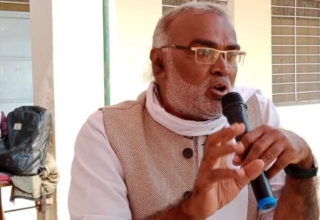
The trio of Amit Shekhar, Janishar Ali, and Mridul Ranjan Sahu, who all have graduated from IIT-BHU (not same batch) also share interest in the field of software development training and e-learning though coding. In 2020, they joined hands to co-found Curiosity Edtech Private Limited to roll out CuriousJr, a coding app for school children (class 7 to 12).
Mridul Ranjan Sahu talks about their ed tech’s journey so far to Curriculum Magazine

What motivated your coming together and idea of starting this venture?
Ali, Amit, and I have known each other for 11 years and have worked or lived together since then. We three wanted to make a difference in the education sector, which is very essential to us because education is one of the most significant aspects of our lives. One day, the three of them came on a zoom call during the lockdown and we identified that awareness around coding was increasing a lot and every kid wanted to learn coding whereas the majority of them do not have access to Laptops. We realised that 88 percent of the 270 million children in K-12 in India do not have access to a PC or laptop. That’s why we focused on building India’s first mobile-based code learning platform for K-12 in vernacular languages. We planned the MVP and launched our first product within 3months of that zoom call in September 2020. The CuriousJr App Store was created so that children could publish and share their work with their friends and family. Later, a competition platform was developed so that students could compete with their fellow coders to see where they were in the ecosystem.
How this was different given there are so many similar platforms?
We wanted to bring this into every student’s life, which pushed us to solve coding education for the masses. Learning in one’s mother tongue empowers young students to think and we wanted to harness their coding skills more effectively to become excellent coders for tomorrow. This is how CuriousJr came up as a mobile solution for K12 students to learn coding in their mother tongue and makes a huge difference. Coding Education has enabled us to perceive the problem statement through a different lens and solve for a sustainable solution.
Why did you choose this age group?
India has a large number of k-12 students, and there is a huge opportunity to impact students’ education at the foundation level. And the level we chose is age appropriate. We’ve also realised that children have more creativity and learning power. We’ve always wanted to give them the opportunity to learn whatever they wish and to share what they’ve created with the rest of the world, so we decided to build a platform for kids to learn coding on their mobile phones and create new innovations using their creativity and technical knowledge. And I’m confident we’ll see some of the most amazing innovations from our younger generation in the coming years.
How has been the response so far?
The responses, by far, have been commendable. On CuriousJr students can learn, create and publish their apps and games, and seeing the impact of their learning in form of apps and games keep them motivated to create and learn more and more and this keep them going on the platform
As we focus more on the type of curriculum than anything else, it gives the students a sense of understanding and guidance from our end. We make sure that we solve and cater to all of their doubts and make their concepts clear so that there is no going back from there.
Parents also like it when their kids are practically involved in courses rather than just theory, and creating something and sharing it with them so they can play the game gives them immense joy and satisfaction with their kids’ learning.
What is the revenue model and the plan for the future?
To make coding accessible for the masses, the Gurugram-based startup has kept its platform free for its users currently. Stating itself as a pre-revenue company, CuriousJr plans to monetise it later by allowing students to pay monthly fees of Rs 1000. It also plans to monetise its class-wise curriculum packages itself or through a coach-assisted model.
In the next five years, the company aims to be a part of 100 million young coders and provide them with the finest learning experience ever.
How do you see the future of online platforms in India?
The pandemic led to a paradigm shift toward EdTech, which will continue in 2022. More students will recognise that traditional offline education lacks the capacity to provide the support required in today’s hyper-competitive environment. In the following years, the online education market is expected to expand. The COVID-19 pandemic has had a variety of effects on our lives. Online education also introduced a more practical approach to learning. And it will only grow from here.










